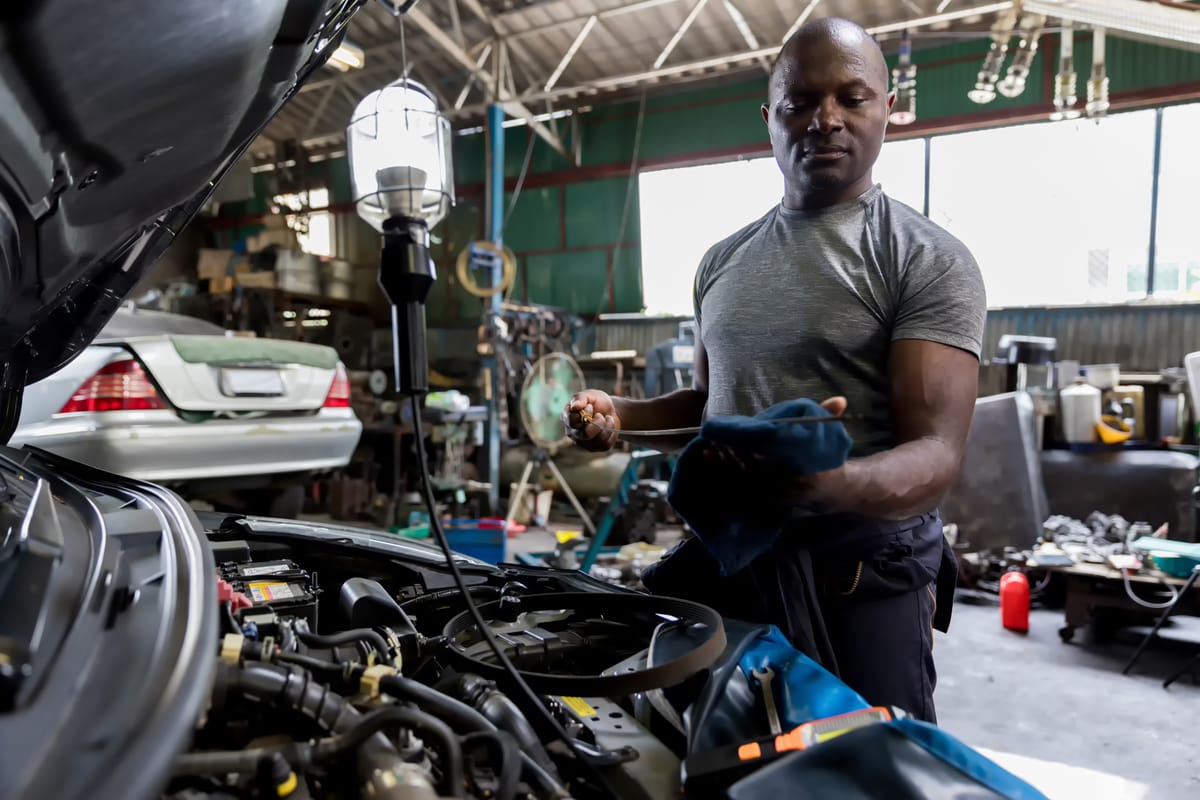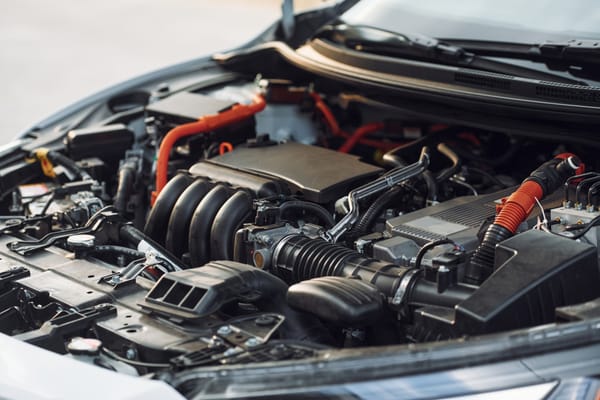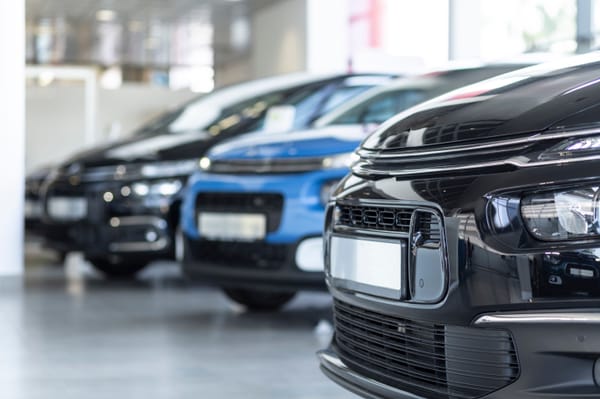The Preventative Maintenance Guide to Avoid Expensive Repairs

The cost of ignoring your car’s regular maintenance has its price and that price can be very expensive. In Kenya, where a combination of poor roads and challenging weather conditions can easily damage your vehicle, delaying repairs only leads to greater stress and costly fixes down the line.
In a 2024 study where 1,000 adults were asked about how they maintain their cars, 46% of them said they’ve paid for a car repair that they believe could’ve been avoided if they regularly maintained their car.
Now, the study might be foreign, but it speaks to the importance of vehicle maintenance. At Peach Cars, we understand the importance of keeping your vehicle in top shape. This guide will help you take actionable steps to save money and avoid unnecessary stress.
Why Preventative Maintenance Matters
Regular maintenance involving regular checks and services costs much less than major repairs. Better yet, it keeps your car performing at its best, lowers the cost of fuel, and helps your car maintain a high resale value. Perhaps the most important benefit, however, is that it helps increase your safety on the road by preventing the breakdown of important components.
Key Preventative Maintenance Tips
Here’s a simple checklist you can follow:
1. Regular Oil Changes
Oil lubricates your engine and reduces friction between moving parts. Over time, oil breaks down and becomes less effective.
Change your oil every 5,000–10,000 kilometres or as recommended by your car's manufacturer. In Kenya, this cost comes to about Ksh2,500–Ksh5,000 and could be even higher depending on the type of oil and the filters your car uses or your preferences.
Why shouldn’t you ignore this simple maintenance process? Neglecting oil changes can lead to engine failure, which may require it to be rebuilt, reconditioned, or entirely replaced and this could cost you anywhere between Ksh60,000 to over Ksh200,000 depending on the extent of the damage, the engine type, and labour costs, among others.
Pro Tip: Do not until the very last kilometre to do the oil change. Instead take your can for an oil change with a few hundred kilometres to spare.
2. Check Tyre Health
Your tyres play an important role in your safety on the road and fuel efficiency. Worn or improperly inflated tyres can cause accidents or poor mileage due to the high rolling resistance – they’ll require more energy to roll.
Proper tyre care prevents blowouts and improves fuel efficiency.
- What to Do:
- Check tyre pressure monthly (use a tyre pressure gauge to ensure your tyres are inflated to the manufacturer’s recommended PSI)
- Rotate tyres every 10,000 kilometres.
- Check for uneven wear or punctures.
Rotating your car’s vehicles will cost you around Ksh1,000–Ksh3,000 per session. When did you last inspect your tyres for cracks or bulges? Yeah, do that now.
3. Check Your Brakes
Faulty brakes are a safety hazard and can lead to costly repairs if ignored. Pay attention to any unusual noises or vibrations when braking. If you notice a squealing or grinding sound, get your breaks checked immediately.
Similarly, check your brake fluid and ensure it remains at optimum levels. And while at it, have your brake pads and rotors always inspected by a professional every six months. This is better than having to replace the brakes for a cost ranging from Ksh10,000–Ksh20,000 or more depending on how many components are damaged and the vehicle type.
4. Inspect Fluids Regularly
Several fluids keep your car running smoothly. These include coolant, brake fluid, power steering fluid, and windshield washer fluid. Therefore, check fluid levels monthly to ensure that:
- The brake fluid is clear to amber in colour, not dark brown.
- There are no leaks from the hoses of the power steering fluid.
- The transmission fluid is not brown or black with a burnt smell
- The coolant is changed every 2-3 years to prevent corrosion
- The windshield washer fluid is enough, especially during dusty dry seasons
Make fluid checks part of your routine when filling up with fuel. Coolant refills cost around Ksh3,000–Ksh6,000. Keep a notebook in your glove compartment to track fluid levels and spot trends that might indicate leaks.
Why is this important? Because low fluid levels can cause overheating or transmission failure.
Pro Tip: Never open the coolant cap when the engine is hot—it could cause burns.
5. Keep Your Battery Charged
Your car battery provides the power to start your engine. Extreme heat and cold can affect battery performance. Keep your battery terminals clean and free of corrosion. If your battery is more than three years old, consider having it tested.
What to Do:
- Have your battery tested before long trips and test your battery every six months.
- A load test is more reliable than just checking voltage.
- Apply petroleum jelly or specialised terminal grease to battery terminals to prevent corrosion in humid conditions. Consider a higher-capacity battery if you run multiple electronic accessories.
- Clean terminals to prevent corrosion.
Batteries lose efficiency over time; regular checks prevent sudden failures – and new battery costs between Ksh7,000–and Ksh15,000.
6. Replace Air Filters
Air filters keep dirt out of your engine and improve fuel efficiency. They should be replaced annually, at every service interval or after every 15,000 kilometres depending on the type and manufacturer specifications.
This maintenance prevents the clogging of the air filters, improving engine performance and fuel consumption.
While at it, don't forget the cabin air filter, which keeps dust and pollutants out of your vehicle's interior. This filter affects air conditioning efficiency and passenger respiratory health.
Pro Tip: Check your air filter during routine service appointments.
7. Spark Plug Check
Spark plugs ignite the fuel in your engine. Worn spark plugs can cause misfires and reduce fuel efficiency. Check and replace your spark plug as recommended in your owner's manual.
8. Schedule Regular Inspections
Routine inspections by a professional mechanic can catch issues early. Schedule professional checks every 6 months or stick to your car manufacturer’s recommended service schedule. Mechanics spot leaks, worn shocks, or alignment issues. Peach Cars offers a free 288-point inspection service that could benefit you if you are intending to sell your car and want to set a fair price.
- What to Inspect:
- Belts and hoses for cracks.
- Suspension components for wear.
- Lights and wipers for functionality.
Basic inspections cost around Ksh3,000–Ksh10,000, which is affordable compared to damaging a vehicle component before seeking help. Inspections help identify hidden problems that could lead to breakdowns.
Budgeting for Maintenance
On average, car maintenance costs about Ksh90,000 annually in Kenya. To manage this, set aside at least Ksh7,500 monthly for routine maintenance. Also, keep an emergency fund for unexpected repairs, like transmission issues, which cost hundreds of thousands of shillings. It’s also important to track past expenses to estimate future costs accurately.
Common Myths About Car Maintenance
- “I only need maintenance when something breaks.” Truth: Waiting for problems increases repair costs significantly.
- “DIY maintenance is always cheaper.” Truth: While some tasks like oil changes are DIY-friendly, complex repairs require professional expertise.
- “New cars don’t need maintenance.” Truth: Even new cars require routine care like fluid checks and tyre rotations.
Read more about these myths and more here: 10 DIY Car Maintenance Myths Debunked: Separating Fact from Fiction
Final Thoughts
Preventative maintenance is not just about saving money—it’s about safety and peace of mind. By following these tips consistently, you’ll avoid costly repairs and keep your car running efficiently for years.
At Peach Cars Kenya, we make car ownership simple. Whether you're buying or selling a car, we offer a secure and hassle-free process. Get a detailed 288-point inspection before buying, and when it’s time to sell, we’ll handle everything from pricing, marketing, and negotiations to paperwork and secure payments.
Call us today on 0709 726 900 to buy or sell your car with confidence!
Sources:
- Oil change cost: https://automotivedoctor.co.ke/understanding-the-costs-of-car-repair-in-kenya/
- Engine repairs: https://keoffers.co.ke/the-cost-of-restoring-a-car-in-kenya-full-breakdown/
- Car maintenance annually: https://www.consumeraffairs.com/automotive/average-car-maintenance-costs.html




